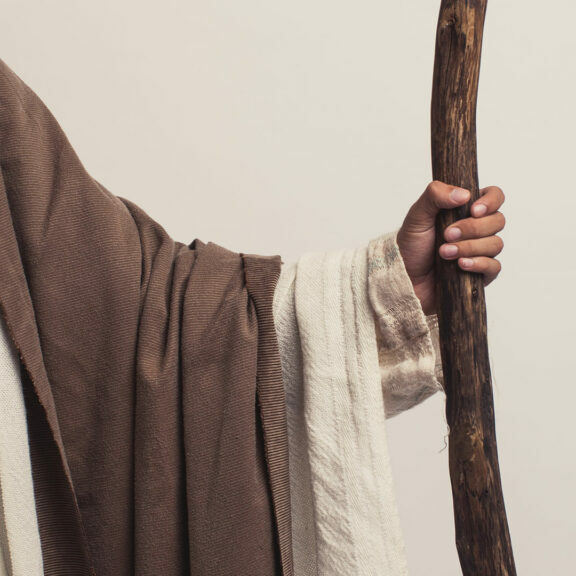March 31, 2019
Pastor Gunnar Ledermann
15:1 Now the tax collectors and sinners were all gathering around to hear Jesus. 2 But the Pharisees and the teachers of the law muttered, “This man welcomes sinners and eats with them.”
11 Jesus continued: “There was a man who had two sons. 12 The younger one said to his father, ‘Father, give me my share of the estate.’ So he divided his property between them.
13 “Not long after that, the younger son got together all he had, set off for a distant country and there squandered his wealth in wild living. 14 After he had spent everything, there was a severe famine in that whole country, and he began to be in need. 15 So he went and hired himself out to a citizen of that country, who sent him to his fields to feed pigs. 16 He longed to fill his stomach with the pods that the pigs were eating, but no one gave him anything.
17 “When he came to his senses, he said, ‘How many of my father’s hired servants have food to spare, and here I am starving to death! 18 I will set out and go back to my father and say to him: Father, I have sinned against heaven and against you. 19 I am no longer worthy to be called your son; make me like one of your hired servants.’ 20 So he got up and went to his father.
“But while he was still a long way off, his father saw him and was filled with compassion for him; he ran to his son, threw his arms around him and kissed him.
21 “The son said to him, ‘Father, I have sinned against heaven and against you. I am no longer worthy to be called your son.’
22 “But the father said to his servants, ‘Quick! Bring the best robe and put it on him. Put a ring on his finger and sandals on his feet. 23 Bring the fattened calf and kill it. Let’s have a feast and celebrate. 24 For this son of mine was dead and is alive again; he was lost and is found.’ So they began to celebrate.
25 “Meanwhile, the older son was in the field. When he came near the house, he heard music and dancing. 26 So he called one of the servants and asked him what was going on. 27 ‘Your brother has come,’ he replied, ‘and your father has killed the fattened calf because he has him back safe and sound.’
28 “The older brother became angry and refused to go in. So his father went out and pleaded with him. 29 But he answered his father, ‘Look! All these years I’ve been slaving for you and never disobeyed your orders. Yet you never gave me even a young goat so I could celebrate with my friends. 30 But when this son of yours who has squandered your property with prostitutes comes home, you kill the fattened calf for him!’
31 “‘My son,’ the father said, ‘you are always with me, and everything I have is yours. 32 But we had to celebrate and be glad, because this brother of yours was dead and is alive again; he was lost and is found.’”
Luke 15:1-2,11-32
I can do whatever I want. That’s a popular phrase these days and it is not only for people who win the lottery. Whether it’s a toddler or teenager, the rebellious or retired, this idea that someone can do whatever they want tantalizes all of us. We like the idea of being able to do whatever we want because it gives us the chance to picture scenes in our minds of freedom and happiness without rules, schedules, deadlines and responsibilities restricting us. We might picture a white sandy beach with an umbrella coconut drink and the sound of gentle waves breaking on the sand. Or we might picture a mountain slope inaccessible to most, except for the brave few looking for true adventure. If you had the chance to do whatever you want, would you take some of that time to help others? If you could do whatever you want, would you take some of that time to help someone who does not deserve it? In our Gospel reading from Luke 15, Jesus revealed that when God could spend his time doing anything he wants, God loves to show us compassion when we don’t deserve it.
Jesus faced a lot of criticism for what he wanted to do with his time. Jesus wanted to spend his time with the people most of society generally avoided. Luke began this section of his gospel writing,
15:1 Now the tax collectors and sinners were all gathering around to hear Jesus.
Jesus wanted to spend time with the people who were really in need of his love and forgiveness, but that still did not make him a philanthropist in the eyes of the Pharisees and teachers of the law. Instead, they saw Jesus as accepting or approving of the behavior of the cheating tax collectors and scandalous sinners muttering,
2…“This man welcomes sinners and eats with them.”
But they were wrong about Jesus. Jesus did not want to spend time with the tax collectors and sinners because he approved of the wicked things they had done. Instead, he wanted to spend time with to save them from themselves.
At this point in his ministry, we hear that Jesus is in a place where he was surrounded by both sinners and Pharisees, so he took the time to show everyone why he wanted to spend time with sinners. Jesus told three parables after the Pharisees muttered their disapproval of his invitation for sinners to eat with him. First, he told the parable of the lost sheep, that a shepherd who has one hundred sheep will leave the ninety-nine to find the one lost sheep, and when he finds it, he will call his friends and neighbors together to give them the good news and rejoice. Second, he said that a woman with ten silver coins who loses one in her house will search carefully until it is found, and then celebrate with all her neighbors when she finds it. Third, he told the parable that most call “The Parable of the Prodigal Son.” In this parable, a man with two sons is approached by the younger who asks for his inheritance early. After getting his half of the estate, he goes away to distant land only to party it all away and become a poor beggar. Finally, he came to his senses while feeding pigs and being envious of what they were eating. When he came to his senses, the younger brother thought
18 I will set out and go back to my father and say to him: Father, I have sinned against heaven and against you. 19 I am no longer worthy to be called your son; make me like one of your hired servants.’
The actions of the younger son are the reason the parable is called the “Prodigal Son,” because prodigal means someone who is reckless or wasteful with money.
I imagine the younger son said something like, “I can do whatever I want,” when he first got his half of the inheritance from his father. The kid may not have won the lottery, but I’m sure it felt like it and we know he acted like it. I can also imagine the older brother rolling his eyes and muttering to himself, “He is going to do whatever he wants.” And, when the younger brother came back from losing everything, I can imagine the frustration of the older brother when the reckless, wasteful, prodigal younger brother returned. And, we can imagine the father being equally, if not more frustrated, but he wasn’t. Instead, Jesus said,
20…“But while he [the younger brother] was still a long way off, his father saw him and was filled with compassion for him; he ran to his son, threw his arms around him and kissed him.”
We would think the father would have been filled with disappointment and anger at his prodigal son losing half of all his father had spent his life working for. Instead, his father was waiting for him to return and when he saw him, he ran to him filled with compassion. And, his father continued to give to his son saying to his servants,
22…‘Quick! Bring the best robe and put it on him. Put a ring on his finger and sandals on his feet. 23 Bring the fattened calf and kill it. Let’s have a feast and celebrate.
I guess the son took after his father because when most other people would have been ready to punish or at least lecture the younger son, the father said to himself, “I can do whatever I want,” and I want to celebrate the return of my son.
When the older son found out that his father was throwing a party for his younger brother, he was angry. He would not even go in to see his brother and when his father came out to ask him to come inside, he said,
29…‘Look! All these years I’ve been slaving for you and never disobeyed your orders. Yet you never gave me even a young goat so I could celebrate with my friends. 30 But when this son of yours who has squandered your property with prostitutes comes home, you kill the fattened calf for him!’
The older brother was right in one sense, the younger brother had been a wasteful, reckless sinner taking his father for granted and abandoning his family for some brief pleasures. He did deserve to be treated like a servant and given what the pigs were eating. The older brother was right when it came to what God’s law reveals about a person, that they are a sinner. However, the older brother did not remember what the gospel reveals to us, that we have a Savior who
loves to show us compassion when we don’t deserve it.
When Jesus told “The Parable of The Prodigal Son,” it was for the benefit of both sinner and Pharisee. Jesus told the parable for the sinners to show that God’s love for them is not dependent on what they have done, but God’s love depends on his desire to love us. Jesus also told the parable to show the Pharisees the danger of believing they deserve God’s love because they have lived their lives better than others and have earned the right to have God bless them. The ‘father’ character in Jesus’ parable was God, who gave his inheritance to both sons. Yes, both sons got the same thing from their father, as Jesus said,
12…So he divided his property between them.
Both, sons were equally blessed, but by the end of the parable, the question was, “which son was truly wasteful and reckless with what their father had given them?”
The foolish request of the prodigal son for the inheritance often stops us from seeing what the father’s true gift was to his sons. Love was the greatest gift the father gave to his sons in the parable and love is the greatest gift our Father has given us. And just like the father in the parable, God’s love for us is not just words, but it is action. God the father showed us his love by creating this world, and for some of us that might mean we’ve been given more blessings than we can handle, even causing us to take them for granted, whether it be time and money for nice vacations, cars and homes, or good health to play sports, throw our kids in the air or walk down the street without getting out of breath. On the other hand, perhaps we feel like God has not loved us like others because we struggle to have enough time with family as we balance working overtime or the late shift to pay the bills, or our health has been taken away from us through constant battles with asthma, arthritis, Alzheimer’s, aches and pains or cancer. God loves all of us, but his love for us has been ruined by sin. And that sin can cause us to forget about God by loving what we have too much or forget about God by hating him for what we don’t have. Jesus’ parable points out for us that it is not about the stuff, the sickness or the situation you are in, but the attitude of your heart. And our hearts are shaped by our God-given faith in what God’s love has done for us beyond whatever temporary things surround us. In our second reading from 1 Corinthians 1, Paul wrote,
1:18 For the message of the cross is foolishness to those who are perishing, but to us who are being saved it is the power of God.
Jesus’ death and resurrection are foolish for those who demand God give them everything they want, but for us who understand the true love of God to save us from this temporary, broken world, the cross proves God’s power to give us life.
When the prodigal son returned, the father showed both sons love they did not deserve. On the one hand, the father threw a feast for his son who lost his father’s wealth. On the other hand, when the older brother was angry at his father’s compassion, his father stopped his frustrated, jealous thoughts by saying, 
31 “‘My son…you are always with me, and everything I have is yours. 32 But we had to celebrate and be glad, because this brother of yours was dead and is alive again; he was lost and is found.’”
No, it doesn’t seem fair to us how God gives out blessings. Sometimes he blesses people who have taken him for granted all their lives. Other times, the people who have always been in their Father’s house forget how generous he loves to be to all people. In our Old Testament reading from Isaiah 12, the prophet wrote about God’s compassion for us when we don’t deserve it, he said,
Isaiah 12:1…Although you were angry with me, your anger has turned away…12:4 “Give praise to the Lord, proclaim his name; make known among the nations what he has done.”
God has every right to be angry with us for taking him for granted as reckless sinners and self-righteous sons. We don’t deserve his compassion, but that is exactly what he has shown us. His compassion is what we trust in for forgiveness and eternal life. And, His compassion is what we share with others.
In a way, the Father said, “I can do whatever I want.” When we fell into sin, God did not want to wipe us out so that the world could go back to being a perfect paradise. Instead, God wanted to save us. Jesus came to save all of us when we did not deserve it. He gave up his good and perfect life as God’s Son for us on the cross to free us from death and hell. In Jesus’ parable, the son who was truly reckless and wasteful was the son who did not trust his father’s love. When you are stuck in sin or struggling with suffering, run to God. Run to your compassionate Father because what he sent his Son to do for you on the cross will never change. Through the cross we who were
dead are alive again; we who were lost are found.
God can do whatever he wants, and we are thankful to know that God loves to show us compassion when we don’t deserve it. Amen.



